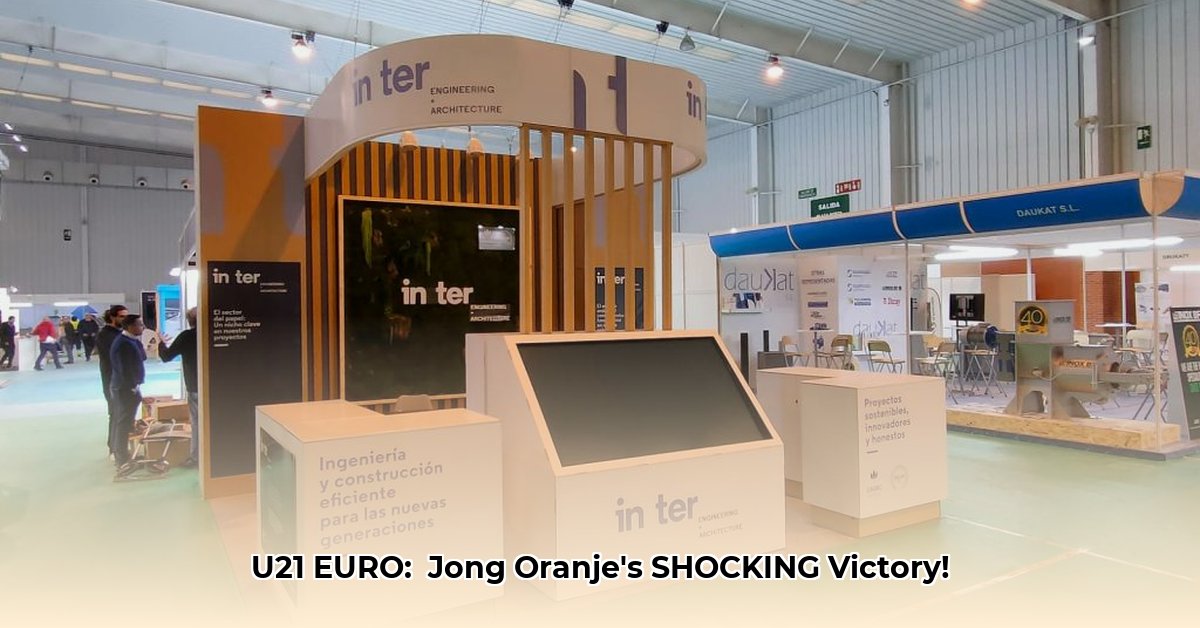
Jong Oranje's unexpected semi-final run at the U21 European Championships captivated the nation, showcasing both exhilarating highs and frustrating lows. Their third-place finish, a testament to their fighting spirit and tactical adaptability, also highlighted crucial areas requiring immediate attention: inconsistent defence and a sometimes-lacklustre attack. This report analyses their campaign, celebrating their successes while frankly addressing their weaknesses, offering a pathway to future triumphs.
A Journey of Contrasts: From Group Stage Stumbles to Semi-Final Glory
Jong Oranje's group stage performance was a mixed bag. A 2-2 draw against Finland and a 1-2 defeat to Denmark cast doubt on their chances. However, a crucial 2-0 win against Ukraine demonstrated their ability to recover from setbacks and secured their passage to the knockout stages. This turnaround revealed a resilient team capable of rising to the occasion under pressure. Did this early adversity ultimately forge their fighting spirit, paving the way for their later success?
Knockout Battles: Thrills, Spills, and a Thrilling Victory
The quarter-final against Portugal was a rollercoaster. An early red card and a missed penalty painted a grim picture, yet Jong Oranje battled back, securing a dramatic 1-0 victory in the dying moments. This match epitomised their spirit and their ability to adapt their game plan on the fly. This incredible comeback, against all odds, will undoubtedly be remembered as a defining moment in their tournament. How did they manage to overcome such adversity? Their unwavering determination provided the answer.
Strengths and Weaknesses: A Balanced Perspective
While the semi-final appearance was a massive leap forward, a balanced assessment reveals areas needing improvement. Their team cohesion was undeniably strong; the players' camaraderie was palpable, creating a supportive and competitive environment. Furthermore, their tactical flexibility allowed them to adapt their style to exploit opponents' weaknesses. However, their defensive vulnerabilities proved a recurring theme. They appeared susceptible to counter-attacks and struggled to consistently maintain the solidity needed at this level. Additionally, their inability to create numerous scoring opportunities points to a need for greater attacking cohesion and clinical finishing. Can they address these issues effectively? Only time will tell.
Individual Brilliance: Ernest Poku and the Collective
Ernest Poku's contributions were undeniably critical to Jong Oranje’s success, scoring crucial goals throughout the tournament. His individual brilliance served as a lifeline at several pivotal moments. However, their over-reliance on such individual brilliance, rather than a collective attacking fluidity, highlights a need for structural improvement in their attacking plays. How can they build a more balanced attacking approach that moves beyond moments of magic?
Actionable Insights: A Roadmap to Future Success
The road ahead requires a focused and multi-pronged approach:
Defensive Solidification (0-1 year): Implement rigorous training focusing on defensive shape, communication, and individual defensive skills. This will focus on reducing goals conceded, aiming for a 30% reduction in conceded goals within one year.
Attacking Refinement (0-1 year): Increase the number of consistent scoring opportunities, with a target of a 20% increase in shots on target within the next year. This will require improved passing accuracy, better movement off the ball, and improved finishing technique.
Discipline Enhancement (0-1 year): Introduce mental strength training to curb impulsive reactions and improve on-field composure. The goal is to reduce the number of yellow and red cards received by at least 25% within a year.
Youth Development System (3-5 years): The KNVB must invest in comprehensive youth development programs, focusing on technical skills, tactical awareness, physical conditioning, and mental fortitude. By implementing a structured development pathway, they aim for a 45% increase in player progression over five years.
Conclusion: A Promising Future, Conditional on Addressing Shortcomings
Jong Oranje’s impressive semi-final run laid bare both their immense potential and the areas that need attention. This campaign was a resounding achievement; however, building on this success requires systematic improvements in defence and attack, alongside a stronger emphasis on discipline. Addressing these critical areas will unlock Jong Oranje's full potential, paving the way for a bright future on the international stage. Their future success hinges on their ability to evolve and adapt, transforming their exciting potential into consistent, high-level performance.